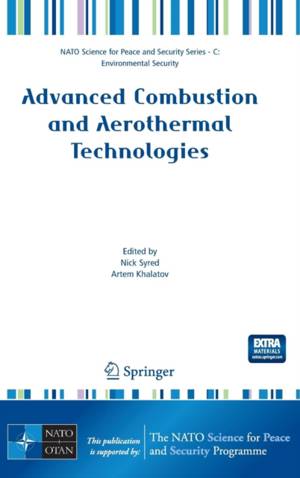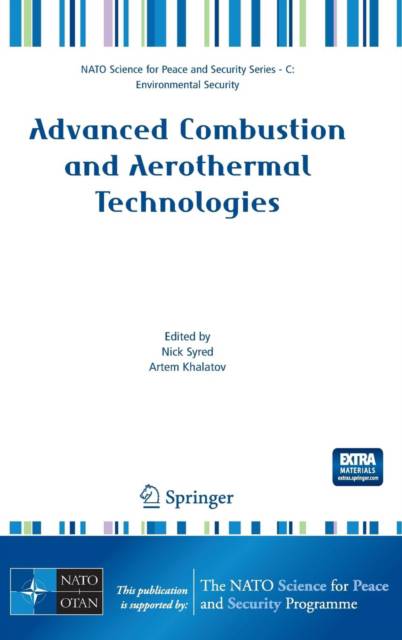
Je cadeautjes zeker op tijd in huis hebben voor de feestdagen? Kom langs in onze winkels en vind het perfecte geschenk!
- Afhalen na 1 uur in een winkel met voorraad
- Gratis thuislevering in België vanaf € 30
- Ruim aanbod met 7 miljoen producten
Je cadeautjes zeker op tijd in huis hebben voor de feestdagen? Kom langs in onze winkels en vind het perfecte geschenk!
- Afhalen na 1 uur in een winkel met voorraad
- Gratis thuislevering in België vanaf € 30
- Ruim aanbod met 7 miljoen producten
Zoeken
Advanced Combustion and Aerothermal Technologies
Environmental Protection and Pollution Reductions
Boek
€ 296,45
+ 592 punten
Omschrijving
The NATO Advanced Workshop "Advanced Combustion and Aerothermal Technologies: Environmental Protection and Pollution Reductions" was held in Kiev (Ukraine) from 15 to 19 May 2006 and was organized by the Institute of Engineering Thermophysics (Ukraine) and Cardiff University (UK). This Workshop based on the long-term collaboration between the Institute of Engineering Thermophysics and Cardiff University resulted in a first NATO Scientific Prize received by Professor N. Syred, UK, and Professor A. Khalatov in 2002, who served as Workshop codirectors. The justification for this Workshop was based upon the perceived need for the bringing together of research in a number of combustion and aerotherm- related areas, so as to allow more rapid progress to be made. The primary Workshop objectives were to assess the existing knowledge on advanced combustion and aerothermal technologies providing reduced environmental impact, to identify directions for future research in the field, and to promote the close relationships and business contacts between scientists from the NATO and partner countries. This synergy in research and development is essential if advances in specific areas are to be widely utilized, whilst helping to cro- fertilize other areas and stimulate new developments. Of especial importance is the dissemination of concepts and ideas evolved in the aerospace industries into other related areas, whilst encouraging contacts, research exchanges, and int- actions between engineers and scientists in the NATO and partner countries.
Specificaties
Betrokkenen
- Uitgeverij:
Inhoud
- Aantal bladzijden:
- 471
- Taal:
- Engels
- Reeks:
Eigenschappen
- Productcode (EAN):
- 9781402065132
- Verschijningsdatum:
- 18/10/2007
- Uitvoering:
- Boek
- Afmetingen:
- 155 mm x 239 mm
- Gewicht:
- 952 g

Alleen bij Standaard Boekhandel
+ 592 punten op je klantenkaart van Standaard Boekhandel
Beoordelingen
We publiceren alleen reviews die voldoen aan de voorwaarden voor reviews. Bekijk onze voorwaarden voor reviews.








